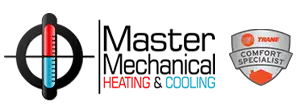How Does Indoor Air Pollution Affect Expecting Mothers?
During pregnancy, there are many things that you must be extra cautious of and even avoid during this sensitive time. Most of these things you have heard about and are already adjusting to, such as reducing physical and mental stress and eliminating raw foods and alcoholic beverages.
Along with those necessary precautions, there are others that you probably didn't realize were also so important. Did you know that one major health concern that often gets overlooked is the risk of indoor air pollution to your unborn baby? Indoor air pollution may adversely affect you and your growing baby's health in a few different ways. Let's discuss the ways indoor air pollution may have a detrimental effect on you and your unborn child and what steps you can take to avoid or reduce it.
What constitutes indoor air pollution?
Harmful substances in the air that harm your overall health, especially during pregnancy, make up indoor air pollution. Your body and your baby's development may suffer if you are continually exposed to indoor air pollution during this vulnerable time in your life. It particularly affects your lungs, throat, and even your entire respiratory system. Indoor air pollutants include but are not limited to dust, mold, pollen, cigarette smoke, toxic gases such as carbon monoxide, radon, ozone, and asbestos. To eliminate these toxins in your home, getting an air purifier is an excellent solution for removing these contaminants. Speak with an HVAC professional about installing an air purifier in your home to prevent inhaling the pollutants.
How does this affect my pregnancy?
Exposure to the pollutants previously mentioned can increase your child's risk of low birth weight and premature birth. Indoor air pollution can impair your unborn child's breathing ability and mental and cognitive functions permanently. Contact an HVAC specialist so that they can provide you with more details on how each pollutant, over time, may contribute to the diminished quality of your home's air.
How can I avoid or eliminate indoor air pollution?
Replacing your air filters regularly will allow clean, clear air to flow freely throughout the home, and it will improve your overall quality of the air. Also, purchasing an air filtration system is an incredibly effective way to combat air pollution in your home. You can also hire an HVAC professional to check for air contaminants in your home. Additionally, a carbon monoxide detector installed in your home will alert your family to this deadly odorless gas.
It is important to implement these solutions as soon as possible to avoid your pregnancy being affected by indoor air pollution in your home. Contact us for more help in reducing your home's indoor air pollution.






